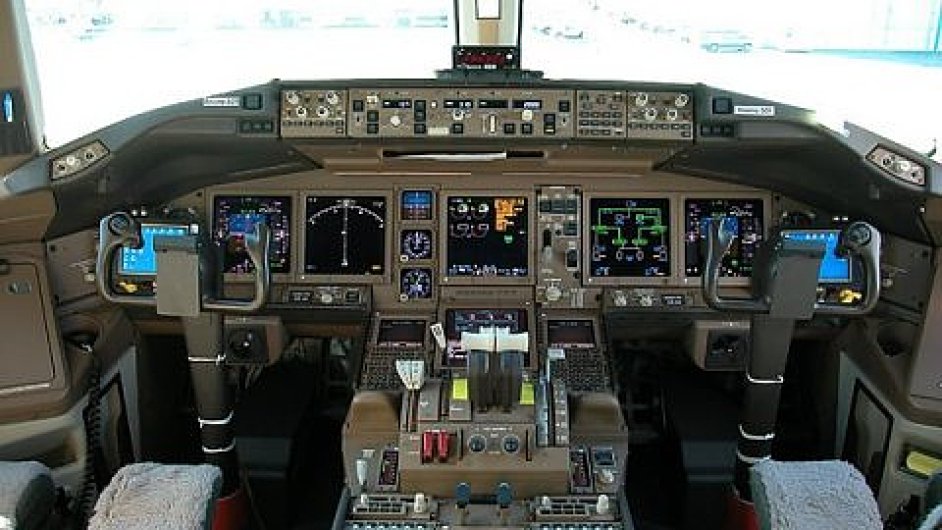By Sam Grobart, Bloomberg Businessweek
At the Hack In the Box conference in Amsterdam, security consultant Hugo Teso demonstrated PlaneSploit, an app he developed that he claims can take control of certain systems aboard an airplane and cause it to change direction or just crash itself into the ground.
Hugo’s no terrorist, mind you. He developed the app to point out the glaring, frightening, insane security holes in most planes’ onboard flight systems. His demonstration was done in a simulated environment, but the methods and effects, he says, are exactly the same as what could happen with a real plane.
“The complete attack will be accomplished remotely, without needing physical access to the target aircraft at any time,” wrote Teso in his presentation abstract for the conference. The hack exploits the plane’s autopilot, transferring control to the hacker, who (in theory) could command the plane from an app running on Android.
The site Help Net Security describes the process in bland, chilling detail:
“The attacker can click on any active airplane and it receives its identification, current location and final destination. In case a nearby airplane system is exploitable (a number of vulnerability vectors mentioned, not much details provided), the application alerts the user via an in-application alert or a push message. The payload can be uploaded with a tap of a button and from that point on, the flight management system is remotely controlled by an attacker.”
Teso says he has been in contact with several members of the airline/aircraft industry and that they are working on addressing these deficiencies. One should hope so.
The website The Daily Caller has published a response from the FAA:
“The FAA is aware that a German information technology consultant has alleged he has detected a security issue with the Honeywell NZ-2000 Flight Management System (FMS) using only a desktop computer,” said Les Dorr, FAA spokesman, in a statement to The DC.
“The FAA has determined that the hacking technique described during a recent computer security conference does not pose a flight safety concern because it does not work on certified flight hardware,” he said.
“The described technique cannot engage or control the aircraft’s autopilot system using the FMS or prevent a pilot from overriding the autopilot,” said Dorr.
“Therefore, a hacker cannot obtain ‘full control of an aircraft,’ as the technology consultant has claimed,” said Dorr.
|
aboard |
na palubě |
|
alert |
upozornit, varovat |
|
app |
aplikace |
|
bland |
mírný, nejasný |
|
claim |
tvrdit |
|
exploitable |
využitelný |
|
FAA (Federal Aviation Administration) |
Federální úřad pro letectví |
|
flight management system |
letový řídící systém |
|
glaring |
evidentní, do očí bijící |
|
hack |
nabourání se (do systému) |
|
mind you |
mějte na paměti |
|
onboard flight system |
palubní řídící systém |
|
override |
přejít na ruční ovládání |
|
payload |
placený náklad (letadla) |
|
pose concern |
představovat problém |
|
spokesman |
tiskový mluvčí |
|
remotely |
na dálku |
|
tap |
poklepnutí |
|
vulnerability |
zranitelnost |
Chcete číst dál?
Ještě na vás čeká 0 % článku.
S předplatným získáte
- Web Ekonom.cz bez reklam
- Možnost sdílet prémiový obsah zdarma (5 článků měsíčně)
- Možnost ukládat si články na později
Zaujal vás článek? Pošlete odkaz svým přátelům!
Tento článek je zamčený. Na tomto místě můžete odemykat zamčené články přátelům, když si pořídíte předplatné.
 Aktuální číslo časopisu Ekonom
Aktuální číslo časopisu Ekonom


 Připravujeme platbu, vyčkejte prosím.
Připravujeme platbu, vyčkejte prosím. Platbu nelze provést. Opakujte prosím akci později.
Platbu nelze provést. Opakujte prosím akci později.



